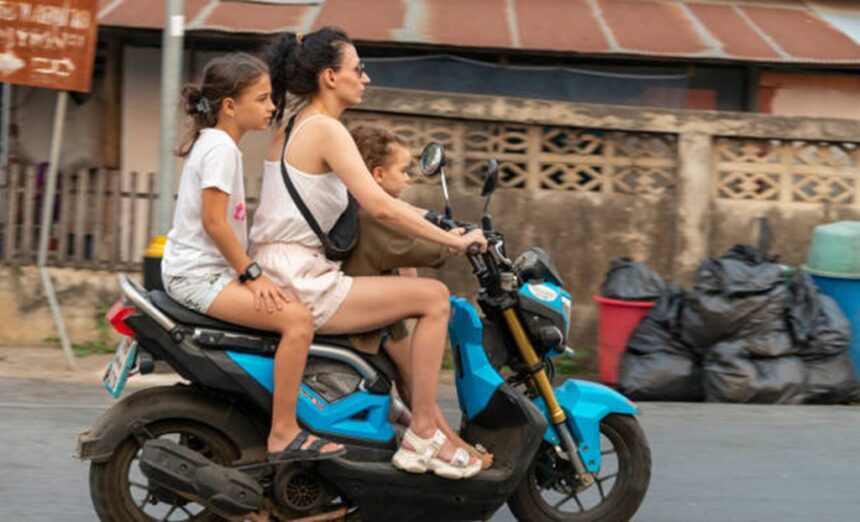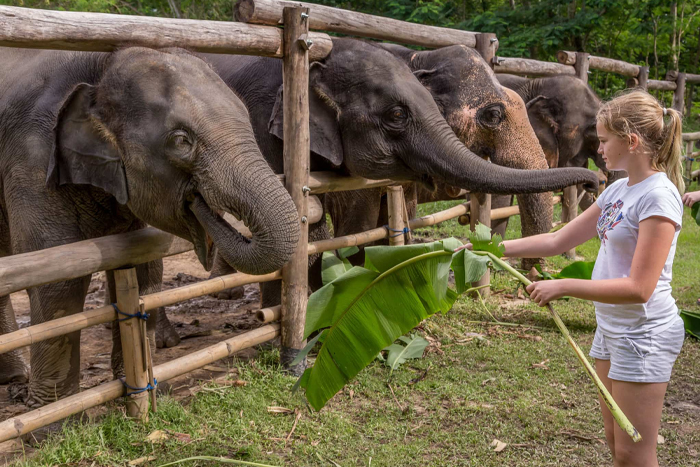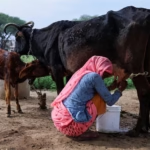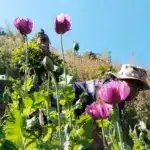Fed up with soaring taxes and rapid population changes at home, more Westerners are packing their bags for Thailand. Cities like Chiang Rai are seeing a steady rise in new arrivals, drawn by the country’s relaxed vibe, friendly locals, and a pace of life that feels refreshingly low-pressure.
Many choose Thailand for its affordable living, warm climate, and rich culture. The slow cost creep and public frustration in high-tax nations have made the simple pleasures and flexibility in Thai life even more appealing. Unlike crowded city living back West, places like Chiang Rai offer space, calm, and close-knit communities.
It’s not just about avoiding taxes or migration jitters. Most expats talk about feeling welcomed, enjoying modern comforts without the same price tags, and being able to shape their daily routines with far less stress. This shift is turning Thailand—from Bangkok to the peaceful hills of Chiang Rai—into a haven for those looking for a better balance.

Why Westerners Are Seeking Alternatives: Taxes and Social Change
As the debate heats up about why so many Westerners now see Chiang Rai and wider Thailand as their new home, it’s impossible to ignore the real push factors behind this trend. For loads of people from the UK, the US, or across Europe, two major forces keep cropping up: higher taxes and swift social changes linked to ongoing mass immigration. Let’s unpack each, so you get a clearer picture of why this shift is gathering speed.
The Impact of High Taxes in Western Nations
Every day, living costs have crept up for nearly everyone, yet the real pinch for many Westerners is the sharp rise in taxes. Big economies such as the UK, US, France, and Denmark have steadily ratcheted up personal tax rates in an attempt to fund ever-growing public services and social programmes.
Consider these facts:
- Top-end income tax rates now exceed 50% in countries like Denmark (55.9%), France (55.4%), and Austria (55%), which puts a heavy load on earners who see a significant chunk of their pay disappear before it hits their bank Top Personal Income Tax Rates in Europe, 2025.
- While the UK’s overall tax revenue sits a bit lower compared to some peers, the number of British workers feeling squeezed by both direct and indirect taxes is still on the rise. How do UK tax revenues compare internationally?.
- In the US, compared to Europe, taxes take a smaller slice of wages. Still, many Americans feel mounting pressure from local, state, and federal taxes layered together, making efficient tax planning harder than ever.r How do US taxes compare internationally?
For retirees or remote workers, the sting is even sharper. Once fixed incomes and pensions are taxed at high rates, everyday spending power takes a real hit. As a result, more people look at places like Chiang Rai, where tax burdens are lighter and the cost of living is far more manageable.
This quest for value is no longer just about finding cheaper sunshine and housing. People want their savings and pensions to stretch further, but they’re also trying to escape what many feel is an endless treadmill of rising fiscal obligations. That’s helped fuel the growing Western presence in Thailand’s smaller cities and peaceful towns.
Mass Immigration and Changing Societies
Beyond pocketbook worries, social dynamics are also shifting. Western societies have experienced waves of immigration, leading to fast-changing population makeups in cities both large and small. For some, this means a vibrant, diverse mix of cultures and a buzzing city life. For others, it brings worry that the pace of change is too fast and their way of life is slipping away.
When cultures meet, communities may struggle with integration, identity, and everyday social interactions. Immigration, Migration, and Culture. Many Westerners now say they feel like outsiders in the very cities they grew up in. Concerns range from the visible – changing languages, customs, and public spaces – to deeper unease over security, job access, and shifting values.
Some of the main issues voiced include:
- Breakdown of familiar communities: Family ties and long-standing neighbourhood traditions often weaken as populations shift rapidly.
- Public services under strain: Schools, healthcare, and housing must stretch to cover surging demand, sometimes stoking feelings of resentment.
- A sense of lost identity: For some, the speed of change means cultural traditions feel sidelined, leading to a sense of displacement. Immigration to the Western world.
- Political upheaval: Immigration debates fuel division and polarisation, making it tough for residents to find agreement on community values or long-term plans. The Complexities of Immigration: Why Western Countries ….
It’s no surprise, then, that many opt for Thailand’s slower, more communal way of life. In places like Chiang Rai, expats talk about finding stability and a deeper sense of belonging. While no move is perfect, the pull of a simpler social fabric—one that feels easier to fit into—makes Thailand a natural choice for those looking for calm, space, and a new kind of home.

Thailand’s Attractiveness for Expatriates: Policies, Lifestyle, and Cost
Thailand keeps climbing the ranks as a favourite destination for Westerners searching for better value, more freedom, and a friendlier pace of life. Towns like Chiang Rai are not just stops for backpackers — expats and retirees from the UK, Europe, and Australia are settling for the long haul, drawn by a mix of tax-friendly policies, flexible visas, and a lifestyle that makes expensive Western cities feel like a distant memory.
Thailand’s Low-Tax Environment and Policy Shifts
Thailand built its reputation as a haven for those avoiding complex, high-tax systems back home. In the past, foreigners could live for years, paying little or no tax on overseas income as long as it wasn’t brought into Thailand within the year it was earned. That’s changing, and newcomers need to keep up with the latest tax updates.
From 2024, expats who spend more than 180 days a year in Thailand and bring in foreign income are subject to new remittance-based tax rules. Money transferred into Thailand, whether it’s a pension, freelance earnings, or investment returns, is now being watched more closely by the Thai authorities. While tax rates remain low compared to Western standards, failure to understand the basics can lead to unwanted surprises at tax time. For more detailed strategy and updated advice, check the recent overview on new tax laws in Thailand.
The Thai government is also looking to tighten tax compliance for both businesses and individuals. Upcoming shifts include drafting rules around worldwide income and proposals for a minimum corporate tax. While Thailand will likely remain competitive compared to high-tax Western countries, anyone considering a new life here should review the latest changes carefully, especially with 2025 updates on the horizon (learn more about Thailand’s global income tax overhaul).
Visas and Long-Term Residency Options
Entry requirements and stay options in Thailand are more flexible than ever, catering to the lifestyles and needs of Western newcomers. There’s a visa pathway to fit nearly every situation:
- Thailand Elite Visa: Ideal for those looking for a premium, fast-tracked residency, this multi-year visa comes with perks, airport services, and the ease of not needing constant renewals.
- Retirement Visa: For those aged 50 and up, the Thai Retirement Visa offers a solid, affordable route to long-term residency. Proof of a set income or savings is required, making it popular among pensioners.
- Long-Stay and Education Visas: Programmes exist for those interested in learning Thai, practising Muay Thai, or immersing themselves in local culture.
- LTR Visa (Long-Term Resident): Geared towards high-earning professionals and remote workers, this new visa supports the rise of digital nomads, offering easier paths for tech and freelance workers wanting stability.
- Standard Tourist and Non-Immigrant Visas: Many start off as tourists, later switching to a suitable long-term option.
Each visa comes with its paperwork and rules. Visa policies in Thailand continue to evolve, with some tightening over documentation and financial stability to prevent “border runs” or irregular stays. For the most up-to-date info on requirements and application steps, you can check the US embassy’s guide to Thai visas and a rundown of common long-term visa types.
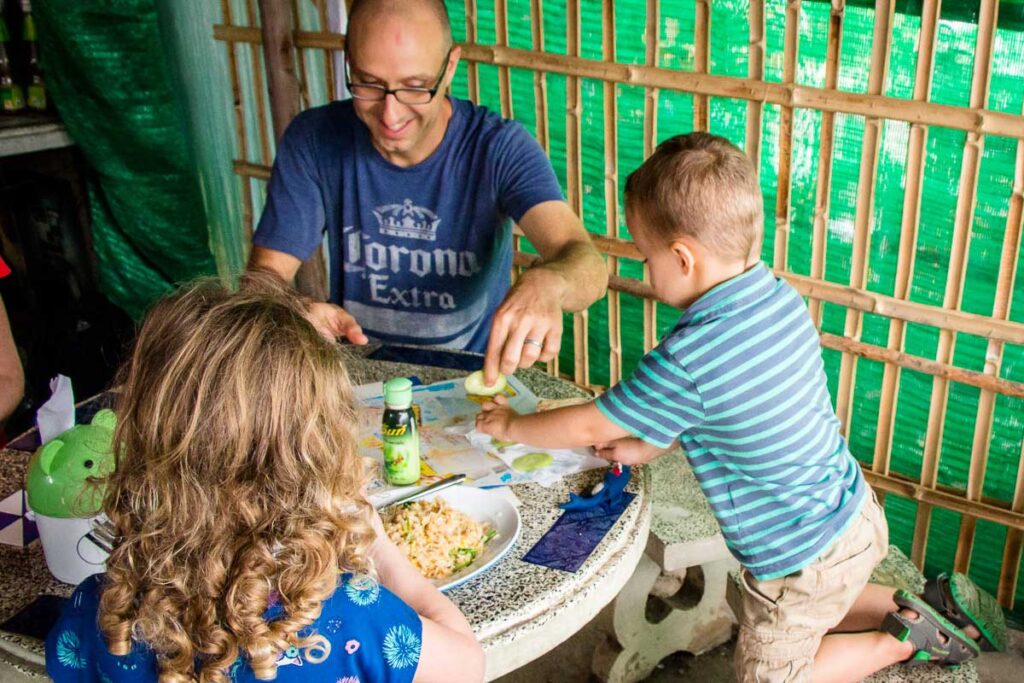
Affordability and Quality of Life in Chiang Rai
The promise of a high quality of life at a fraction of Western prices is one of Thailand’s top draws. Here’s how the numbers break down:
- Cost of Living: In Chiang Rai or similar cities, living costs can range from $500 to $1,200 (around £400–£950) per month, depending on lifestyle. This covers rent, food, transport, and occasional treats. In Bangkok or fancy resort towns, it’s more, but still a bargain compared to London or Sydney!
- Rent: A comfortable one-bedroom flat in Chiang Rai city centre can be found for under $300 a month. Beach or prime city locations in Bangkok cost more, but the savings are significant next to high-rent Western housing (check detailed costs in Thailand).
- Everyday Expenses: Simple pleasures like eating out, hiring cleaners, or enjoying a massage are affordable. Local food is healthy, delicious, and rarely costs more than a couple of quid per meal.
- Healthcare: Thailand’s private hospitals are world-class, with English-speaking doctors and modern facilities. Treatment prices are a fraction of what you’d pay in the US or UK, making both minor care and major surgery accessible.
- Social and Wellness Options: Expats can join fitness clubs, yoga studios, and cultural workshops, or spend days exploring night markets and mountain trails. Thai hospitality and the relaxed way of life help many Westerners adjust quickly and feel at home.
In Chiang Rai, expats highlight the ease of daily living, the kindness of local people, and the joy of having more disposable income for hobbies, travel, and wellness. Whether it’s finding fresh mangos at the market, stretching out under palm trees, or signing up for language classes, Thailand offers a comfort and rhythm many miss in their home countries. To explore real-world expat budgets and what to expect, see this living expense guide.
This combination of affordable living, flexible residency, welcoming culture, and sunshine keeps Westerners coming — and staying — in Northern cities like Chiang Rai, where a slower, richer life awaits.
Chiang Rai: A Prime Destination for Western Expats
Chiang Rai sits quietly in northern Thailand, offering Western expats a perfect alternative to the noise and cost of bigger cities. It attracts those after low-stress living, natural beauty, and a strong sense of community. Everything about Chiang Rai encourages a healthier, slower pace—ideal for those leaving behind high taxes and shifting cultures in the West.
Natural Beauty and Tranquil Living
Chiang Rai is surrounded by rolling green hills, lush rice fields, and misty mountain peaks. The Kok and Mekong rivers wind through the province, delivering endless views and a sense of calm that’s hard to find elsewhere. With a climate that stays cooler than southern Thailand and plenty of open land, the city invites expats to enjoy the outdoors in new ways every day.
Early mornings often start with a stroll by the river. Locals and expats alike cycle on quiet roads, practise yoga with mountain views, or head to famous spots like Singha Park for a mix of gardens, lakes, and gentle adventure.
The region is dotted with waterfalls, hot springs, and national parks, so you’ll never run out of open spaces to explore. For those who want to focus on wellness, Chiang Rai offers spa retreats, meditation classes, and plenty of fresh-air exercise options. You can read more about the nature, parks, and wellness activities in the area on Nature & Parks in Chiang Rai and Chiang Rai Retreats: Peace and Well-being in the Mountains.
The scenery isn’t only for gazing. It shapes daily life. From Saturday night markets to hillside coffee farms, you find gentle activity woven into the routine here. Clean air, open space, and a culture that values wellness make Chiang Rai a welcome escape from crowded, expensive cities abroad.
Integration and Community Life
Joining the local expat community in Chiang Rai is simple— and often happens faster than you’d expect. While the city is much smaller than Bangkok or Chiang Mai, it’s home to a steadily growing network of Westerners, many of whom are retirees or remote workers.
The multicultural atmosphere is friendly and down-to-earth. Groups like the Chiang Rai Expat Club welcome new arrivals, making it easy to get local tips, meet people, and join social gatherings. These networks run everything from coffee mornings to charity events, where newcomers quickly find their footing.
You’ll spot familiar faces at local cafés, hiking trails, and the city’s popular weekend markets. Social life might be quieter here, but it’s rich in real connection—Westerners and Thais mingle at cultural festivals, sports groups, and language exchanges. It’s common for expats to blend into Thai social circles, learn the basics of the language, and even team up for community projects. For a deeper look at community experiences and settling in, check out Chiang Rai, Thailand: Retirement Info, Cost of Living & More.
Newcomers regularly comment on how welcoming Chiang Rai feels for those who want a genuine local experience. Expats build friendships easily and often say they feel part of something, not just passing through. The sense of ease and belonging sets Chiang Rai apart from many bigger, busier expat hotspots.
Infrastructure, Connectivity, and Daily Living
Daily life in Chiang Rai strikes a smart balance between comfort and simplicity. Housing options range from riverside condos to peaceful homes just outside town. Rents are low compared to Bangkok or Western cities, and many rentals come furnished. With the right local help, even newcomers can find a place in just a few days.
Healthcare is a strong point. The city’s hospitals and clinics offer modern care, and many doctors speak English. For more specialized treatment, Chiang Mai is a short drive away and boasts world-class private hospitals. Everyday needs—groceries, pharmacies, transport—are easy to manage and rarely involve long waits or big costs.
Internet connectivity is reliable, with fast speeds and affordable packages. This keeps remote workers, freelancers, and digital nomads productive, and means you’re not cut off from family or work back home. Public transport is basic but efficient, with buses and songthaews (shared taxis) making it easy to get around. Roads are good for car and scooter use, while ongoing infrastructure projects aim to keep the city connected regionally and nationally, as detailed in the SDG Profile – Chiang Rai.
For families, a handful of international schools operate in and around Chiang Rai. School fees are lower than in Bangkok, yet children still benefit from English-based curricula and a supportive learning environment.
Life in Chiang Rai feels refreshingly practical. Shopping for food, sorting visas, or getting your home set up rarely turns into a drawn-out hassle. The city’s scale and pace allow expats to spend more time on what matters—wellness, friendships, and new adventures.
With its blend of natural calm, strong community, and simple daily comforts, Chiang Rai stands out as a top choice for Westerners who want a friendly, affordable, and rewarding new home in Thailand.
Conclusion
Thailand keeps popping up as a solid choice for Westerners wanting to swap high taxes and fast-changing cities for something more grounded. From Chiang Rai’s lush hills to its open, welcoming community, the appeal goes beyond just saving money or escaping social stress. People find better value for their pensions, a slower pace, and room to build new connections.
Still, it’s wise to weigh the pros and cons. Tax rules are changing, and slipping into a new culture brings fresh challenges. Life in Chiang Rai and across Thailand’s cities often means simpler living with fewer everyday worries, but sorting visas and finding long-term stability takes some planning.
If you’re considering this move, take your time to explore, talk with expats who’ve made the jump, and get familiar with local customs. Chiang Rai offers a new take on life for those willing to adapt and look for genuine connections. Thanks for reading—feel free to share your thoughts or experiences below, and stay tuned for more guides on making the most of life in Thailand.




